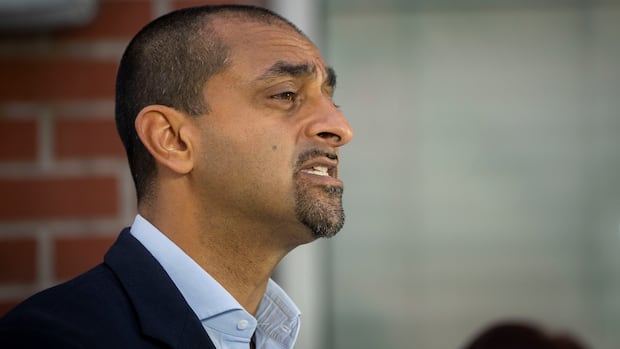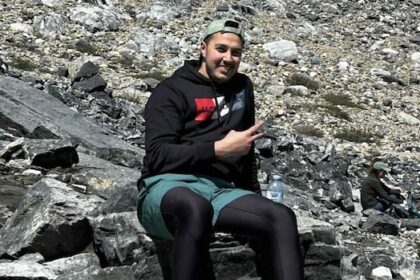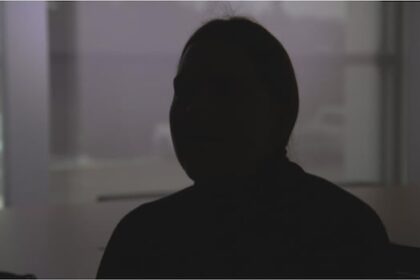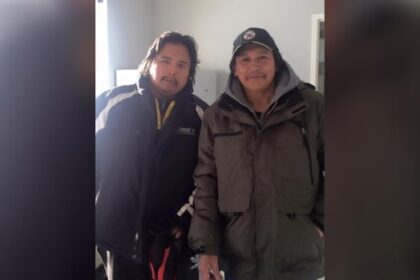British ColumbiaBritish Columbia’s jobs minister says ending a tanker ban to service a pipeline from Alberta to B.C.’s northern coast would put billions of dollars’ worth of other projects at risk by defying the wishes of First Nations.Sources say that federal government’s deal with Alberta includes pipeline to B.C. coastListen to this articleEstimated 5 minutesThe audio version of this article is generated by text-to-speech, a technology based on artificial intelligence.B.C. Jobs Minister Ravi Kahlon says ending a tanker ban along the province’s North Coast would risk billions as talk of a new pipeline heats up. (Ethan Cairns/CBC)British Columbia’s jobs minister says ending a tanker ban to service a pipeline from Alberta to B.C.’s northern coast would put billions of dollars’ worth of other projects at risk by defying the wishes of First Nations.Ravi Kahlon says the province’s NDP government also remains opposed to the pipeline project, while B.C. Liberal MPs said Wednesday the tanker ban on the northern B.C. coast can’t change without provincial and First Nations consent.It comes as Prime Minister Mark Carney and Alberta Premier Danielle Smith are moving closer to reaching a deal on the future of Alberta’s energy sector, according to a senior government official who spoke to CBC News, and it’s likely to include some language about a path forward for the northwest B.C. oil pipeline that Smith has long demanded. WATCH | People speak up about proposed pipeline:Oil pipeline supporters, opponents in B.C. sound off on potential projectAnother proposed oil pipeline to B.C.’s coast has plenty of vocal skeptics, including the premier, as well as supporters. CBC’s Katie DeRosa has the reaction from Coastal First Nations and provincial officials. But Kahlon said the B.C. government’s position was unchanged.”[First Nations] don’t believe it’s in the interest of their region,” Kahlon said. “We made our position clear that we have billions of dollars of investments right now, real projects that are ready to go, and we don’t want to put any of those projects at risk.” WATCH | B.C.-Alberta tensions mount over pipeline:Tensions mount between B.C. and Alberta over pipelinesTensions have ramped up between B.C. and Alberta over the idea of an oil pipeline to B.C.’s North Coast, with Danielle Smith accusing David Eby of being “un-Canadian” and Eby slamming Smith for advancing what he calls a fictional pipeline. Katie DeRosa has more on a battle that’s pitting western provinces against each other. The provincial government has said the tanker ban guarantees a “fragile consensus” among First Nations when it comes to resource projects in northwestern B.C., and Kahlon said his government wants to push those projects across the finish line. Kahlon also pointed out that the project, which Premier David Eby has called Alberta’s “imaginary pipeline,” still lacked a private sector proponent. “So we continue to urge the federal government, if they want to increase the capacity [to ship oil], to look at the existing pipeline that the taxpayers of Canada already own, and support projects that are ready to go.” WATCH | Indigenous leaders, B.C. premier want to uphold tanker ban:Indigenous leaders and Premier Eby sign declaration to uphold coastal oil tanker banPremier David Eby and Coastal First Nations are doubling down on their support for the oil tanker ban off B.C.’s north coast and are calling on Ottawa to do the same. But as CBC’s Katie DeRosa reports, some Indigenous communities are open to another pipeline. Kahlon suggested his government appeared caught off-guard by Wednesday’s reports. “I think it’s always better to have governments be open, and having conversations,” Kahlon said. “We are learning some of this stuff from the media.” Heiltsuk Nation Chief Marilyn Slett, right, speaks as Hereditary Chief Wigvilhba Wakas Harvey Humchitt Sr. listens during a news conference in February. Slett and the Heiltsuk Nation have long been opposed to lifting the tanker ban. (Darryl Dyck/The Canadian Press)The Heiltsuk Nation also said in a statement that a potential memorandum on a carve-out to the tanker ban “could not come at a worse time,” and a ban is not a ban if it includes exceptions.The First Nation in northern B.C. is currently responding to a freight barge stacked high with shipping containers and taking on water.”This ongoing marine emergency shows once again that coastal First Nations are ground zero for the dangers of marine accidents, including oil spill, and we shoulder the burden of risk of expanded marine traffic,” it said.Heiltsuk Nation Elected Chief Marilyn Slett told CBC News that she had yet to meet with Carney or federal Energy Minister Tim Hodgson about pipeline proposals or lifting the tanker ban.”They talk about Indigenous consent, they talk about support for their projects. Yet, you know, they continue to sidestep us,” she told CBC’s Radio West, on Wednesday.”The confidence I have is our communities will always support the tanker ban and will always advocate and fight to have it remain in place,” she added. “The confidence that I have in the government, whether or not they’re going to maintain it — you know, I just feel a level of mistrust.”Liberal MPs reactJonathan Wilkinson, a B.C. Liberal MP and a former federal environment minister, said that “a number of things” would need to happen before the tanker ban could change, including discussions with the B.C. government and coastal First Nations.”The prime minister was pretty clear that the projects would need the support of the jurisdictions in which they’re being built. So I think there’s got to be some conversations with the premier,” Wilkinson said.”In terms of First Nations, I mean, there needs to be significant support. It doesn’t necessarily have to be unanimous. It wasn’t in the case of Trans Mountain. But there needs to be significant support and at present I don’t think there is.”North Vancouver MP Jonathan Wilkinson said there’s no consensus on lifting the tanker ban, and it would need consent before it proceeds. (Ethan Cairns/CBC)Gurbux Saini, another B.C. Liberal MP, said before Wednesday’s weekly caucus meeting that “there will be no pipeline” unless First Nations and the B.C. government give their consent.Ellis Ross, a B.C. Conservative MP whose riding includes the Port of Prince Rupert, said the talk of changes to the oil tanker ban is “interesting.””Canada has the constitutional authority to do this, and it’s quite interesting that the province of B.C. seems to feel they’re exempt from the constitutional accommodation duties of First Nations,” Ross said before question period Wednesday.”If this project does take hold, there’s permits that B.C. will have to address, and so they’ll have to consult and accommodate First Nations as well.”Ross said that while he hasn’t heard much discussion in his riding about the future of the tanker ban, that likely would change if a project description is filed with the Impact Assessment Agency of Canada. With files from the CBC’s JP Tasker and Sarah Penton
Ending tanker ban risks billions, B.C. minister says, as pipeline talks heat up











